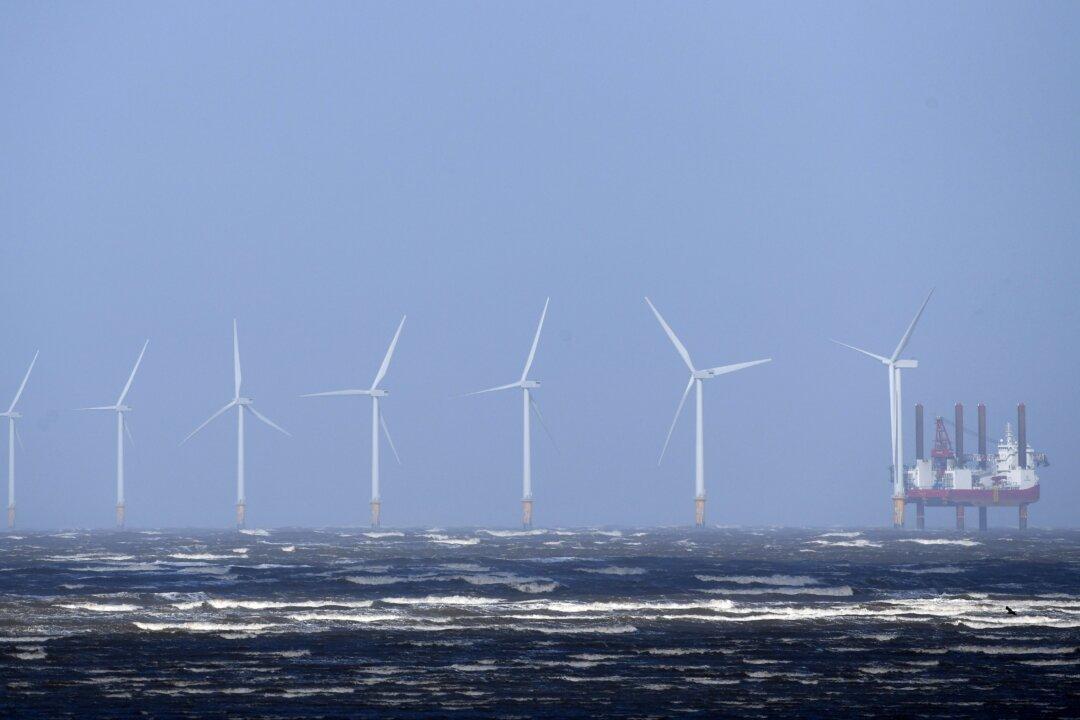A sudden fall in wind output triggered a spike in power prices in the United Kingdom, the world’s second-largest market for offshore wind power.
At the Epex Spot SE, some hourly power contracts rose above £1,200 ($1,445.92) per megawatt-hour on Tuesday, according to Bloomberg. Power prices for the 7:30–8:00 p.m. slot on Monday traded at £486 at the Epex Spot. The day-ahead auction cleared at £384 per megawatt-hour, which is the highest rate since Aug. 31.





